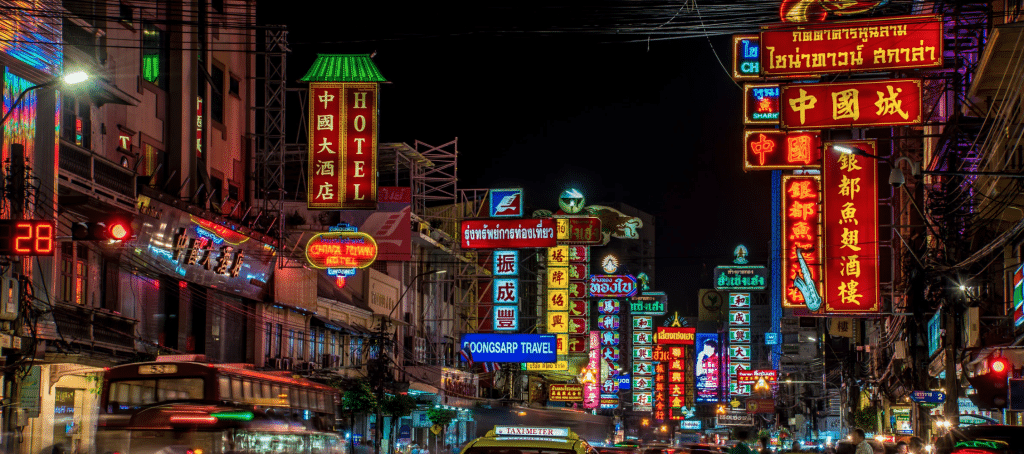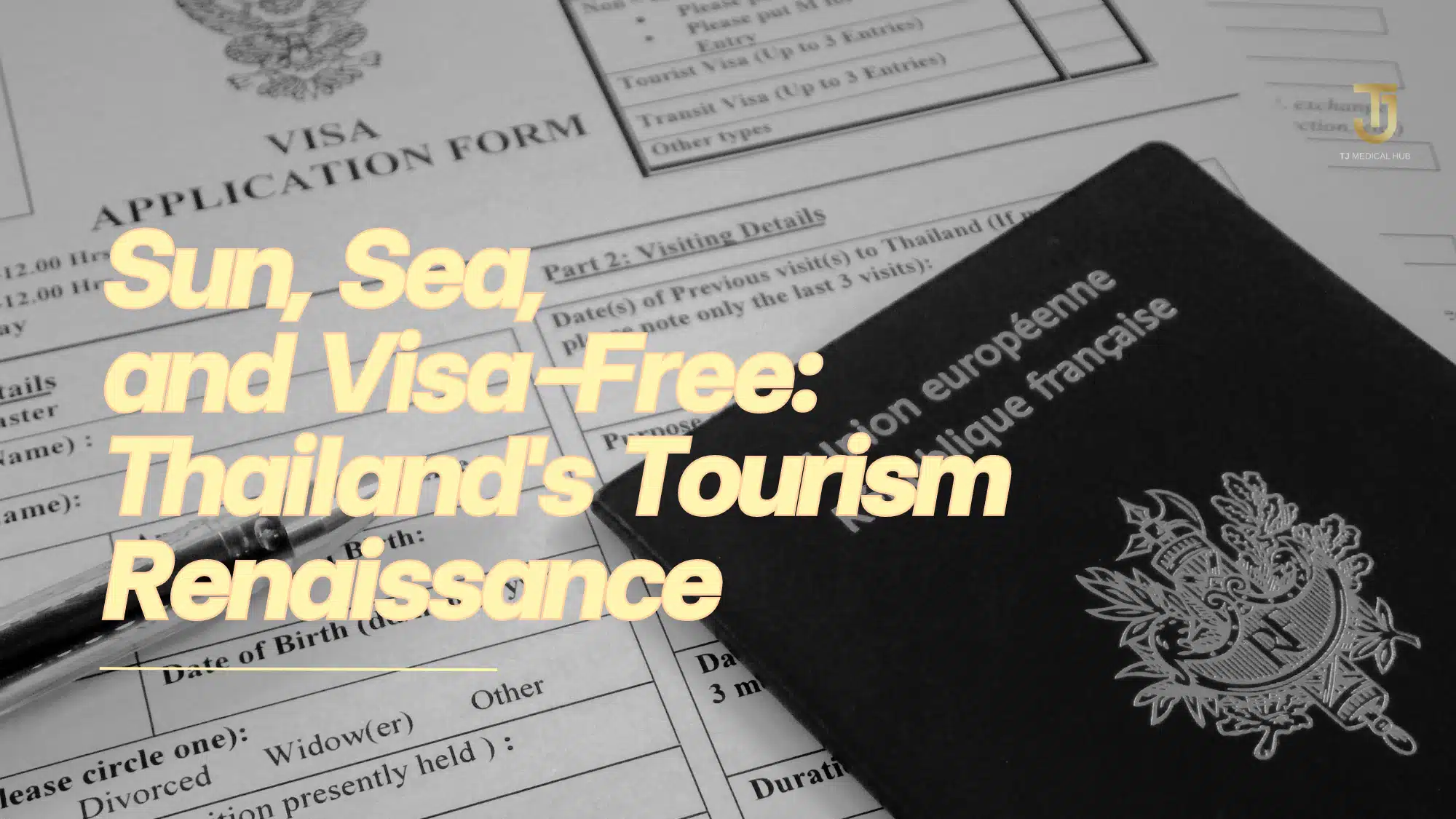“The upcoming visa exemption policy in Thailand marks a pivotal moment, promising a surge in tourism and a positive economic ripple. It’s not just about welcoming more visitors; it’s about catalyzing growth, fostering cultural exchange, and fortifying Thailand’s position on the global stage.”


In an exciting development poised to breathe new life into Thailand’s tourism sector, the forthcoming implementation of a visa exemption policy is expected to usher in a wave of benefits for the country in the coming year. This strategic move is not only anticipated to boost tourism numbers but also promises to create a ripple effect, positively impacting various facets of the economy. Let’s delve into the key benefits that the visa exemption policy is expected to bring to Thai tourism.
The Tourism Authority of Thailand (TAT) has adjusted its projections for inbound Chinese tourists, expecting 4 million arrivals this year, generating an estimated 257.5 billion baht in revenue. From January to October, 2,765,906 Chinese tourists visited, with an average daily influx of 8,000-9,000 after the Chinese National Day holiday. Sisdivachr Cheewarattanaporn, President of the Association of Thai Travel Agents, believes the year-end figure will be around 3.5 million, emphasizing the need for government support to boost package tour sales, crucial for attracting Chinese visitors.
The Tourism Authority of Thailand (TAT) has adjusted its forecast for inbound Chinese tourists, anticipating 4 million arrivals this year, generating an estimated 257.5 billion baht in revenue. From January to October, 2,765,906 Chinese tourists visited, averaging 8,000-9,000 daily post the Chinese National Day holiday. Sisdivachr Cheewarattanaporn, President of the Association of Thai Travel Agents (ATTA), expects the year-end figure to be approximately 3.5 million, emphasizing the importance of government support to boost package tour sales, critical for attracting Chinese visitors.
To aid Chinese tourism recovery, Sisdivachr suggests promoting robust “series tours” through tour companies, given that 90% of the market relies on individual Chinese tourists. The recent Cabinet approval of visa exemptions for Indian and Taiwanese tourists, extending to May 10, 2024, and similar measures for Chinese, Kazakh, and Russian tourists, indicates a positive step. ATTA anticipates these stimulus measures to have a more significant impact next year, emphasizing the need for effective marketing and public relations efforts. With the high season approaching, ATTA calls for more flights to India to accommodate demand effectively, ensuring the success of the free visa policy stimulus.


1. Increased Tourist Arrivals:
The primary advantage of the visa exemption policy lies in its potential to significantly increase tourist arrivals. By eliminating visa requirements for certain nationalities, Thailand is poised to attract a broader spectrum of international visitors. This inclusive approach is expected to entice travelers who might have been deterred by the visa application process, thereby contributing to a notable surge in tourist footfall.
2. Enhanced Economic Impact:
A boost in tourist arrivals translates directly into a positive economic impact. With more visitors exploring the vibrant landscapes, cultural heritage, and urban hubs of Thailand, the hospitality, transportation, and retail sectors are likely to experience a surge in demand. This, in turn, is expected to stimulate job creation and foster economic growth across various industries, providing a welcome boost to the country’s economy.
3. Diversification of Tourism Markets:
The visa exemption policy is not only about increasing the quantity of tourists but also about diversifying the tourism markets. By attracting visitors from a wider range of countries, Thailand can reduce its dependence on specific source markets, making the tourism industry more resilient to external factors. This diversification strategy can contribute to a more stable and sustainable growth trajectory for the Thai tourism sector.
4. Fostering Cultural Exchange:
The visa exemption policy facilitates easier travel, fostering cultural exchange between Thailand and other nations. As more tourists from diverse backgrounds explore the country, there is an opportunity for a rich exchange of ideas, traditions, and experiences. This cultural interchange not only benefits the tourists but also enriches the local communities, creating a more globally connected and culturally vibrant Thai society.
5. Strengthening Diplomatic Relations:
Beyond the economic and cultural aspects, the visa exemption policy can play a role in strengthening diplomatic ties. Simplifying the entry process for visitors can be seen as a gesture of openness and hospitality, fostering positive relations with countries enjoying visa-free access. This diplomatic goodwill can have far-reaching effects, positively influencing international cooperation and partnerships.
In conclusion, the introduction of a visa exemption policy is poised to be a game-changer for Thai tourism. By removing barriers to entry, Thailand is not only set to welcome a greater number of visitors but is also laying the foundation for a more robust and diversified tourism industry. As the country prepares to embrace this strategic move, the stage is set for a flourishing era in Thai tourism, bringing with it a myriad of economic, cultural, and diplomatic benefits and Taiwan’s market demonstrates sustained growth, and the introduction of free visas is poised to amplify the influx of Taiwanese tourists to Thailand.
Over the initial 10 months of this year, Thailand hosted a total of 22 million foreign visitors, including 505,672 tourists in the preceding week (October 23 – October 29), averaging 72,239 foreign tourists daily. This influx contributed significantly to the revenue generated from foreign tourists, amounting to a total of 927.55 billion baht. Malaysia led the chart in sending the highest number of tourists to Thailand in the past week, totaling 75,079 visitors, followed by China with 58,923, India with 32,555, Russia with 27,870, and South Korea with 27,305 visitors.


